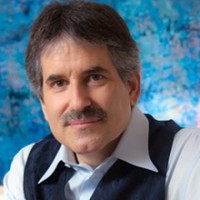The traditional teachings of spiritual enlightenment tell us that in order to be one with Spirit we need to shrink our egos down to the size of a pea.
Those rare beings who are considered to be saints are said to be “selfless.” Higher spiritual development, whether Eastern or Western, is generally determined by how tangibly and profoundly the individual has transcended his or her egotistical inclinations. And those rare individuals who have authentically attained such a state of being are impressive indeed.
While I admire such spiritual exemplars, and find the personalities of egomaniacs to be obnoxious in the same way that most people do, I’m not sure that shrinking our egos down to the size of a pea really makes sense in this day and age as the goal of higher spiritual development. As a matter of fact, I’m going to say something provocative: I’m of the opinion that spiritual evolution in the 21st century is going to be about having even bigger egos—not smaller ones. Let me explain.
You see, the ego is not the problem. Narcissism is the problem. A narcissist is someone who lives in a world of self-obsession and self-concern. When I was a young person, I was extremely narcissistic. Like many others of the so-called “me” generation, I was obsessed with my inner emotional and psychological world—my fears, my desires, my achievements, my failures. I was the star of a non-stop daytime (and nighttime) soap opera that was my life. In retrospect, my life wasn’t really that interesting, because I wasn’t doing anything truly great or laudable. But that didn’t really matter. My own self-experience always felt incredibly important, simply because it was all about me.
My first breakthrough to a dimension of being that completely transcended the little world of “me” occurred when I was a teenager. For a few precious moments, the universe seemed to open up in the most extraordinary way imaginable. I awoke to a perception of infinity—beginningless-ness and endlessness with no center. I was nowhere, but I was also everywhere. My prior sense of self was crushed out of existence by the enormity of what I was seeing and simultaneously I experienced myself to be everything all at the same time. This monumental glimpse into reality beyond the small self was short-lived, but it lasted long enough to change my life forever.
In the years that followed, I did lots of spiritual work and long hours of sitting very, very quietly by myself. Eventually, I met a teacher who helped me, over a brief period of time, to make the metaphysical transition from small self to big Self. When I left him three weeks later, I found myself alone on a train sitting in the station in Lucknow, India, about to leave for Delhi.
Suddenly I was seeing myself from a completely different vantage point. I no longer saw the world from within the prison of my small self. Now I saw my small self from outside it. And this outside position included the whole universe. To say I was amazed is an understatement. I was in a state of awe and wonder at the spectacular turn of events, shift in perspective, and profound self-transformation. Now my sense of self was literally enormous. And this enormity was inclusive. The once-tiresome and mundane melodrama of my personal identity had broken wide open and suddenly felt like it was the thrilling journey of the entire cosmos. My own life now felt like it was one with all of life and my sense of self had transformed in such a way that now I wanted to embrace or include as many others in this newfound consciousness as I could.
In those three weeks I went from being a seeker to being a teacher myself. My previous experience of insecurity and self-doubt became displaced by a powerful self-confidence and often-surprising clarity. Many people found this clarity and confidence inspiring, compelling, and even liberating. Others found it to be simply too much. To them, my confidence was perceived as arrogance and as a sign of a big ego.
What had happened to me in this profound shift of identity was this: as a young man, my ego had been enormous—because I was so painfully and narcissistically self-centered. When I became a seeker, I relentlessly sought for the kind of knowing that the greatest mystics have described to us, a mysterious truth that I knew my mind would never be able to grasp. Because of this, I constantly had to humble myself.
When I finally met my teacher, it didn’t take him long to convince me that he had direct access to what lay on the other side of the veil of the separate self. In order for that veil to drop within me, I had to humble myself before him. I remember one day hearing myself utter the words: “I want to die (to the small self), but I don’t know how.” He was sitting quietly on his bed and I was sitting on a chair in front of him. He didn’t respond.
When that veil finally lifted, the power of my personality grew by leaps and bounds. It became big. Now, especially in moments of inspiration, it seemed to be a mere container through which the inconceivable nature of the creative force of the cosmos could express itself. This shift from narcissism to humility to big Self is, and always has been, the journey of the mystic and the realizer. The bigger our self becomes after we’ve transcended the crippling effects of narcissism, the more powerfully and creatively we will be able to live our precious human lives. Because we’ve gotten over our small selves, we will be living for a higher purpose. And that’s what changes everything.
This post was adapted from Andrew Cohen’s BigThink.com blog, The Evolution of Enlightenment
~
Editor: Kate Bartolotta










Read 2 comments and reply